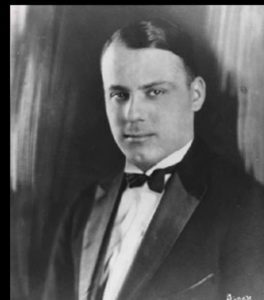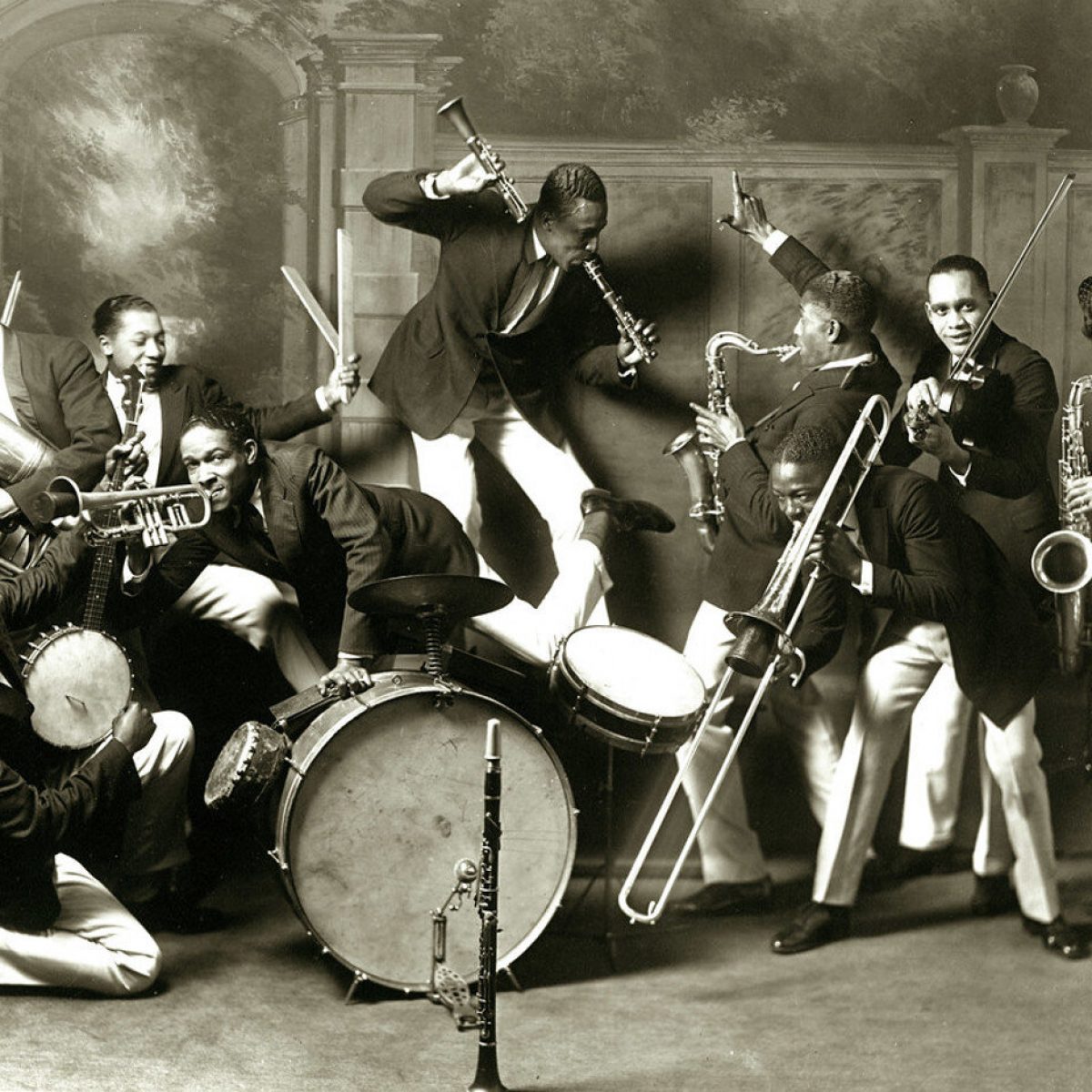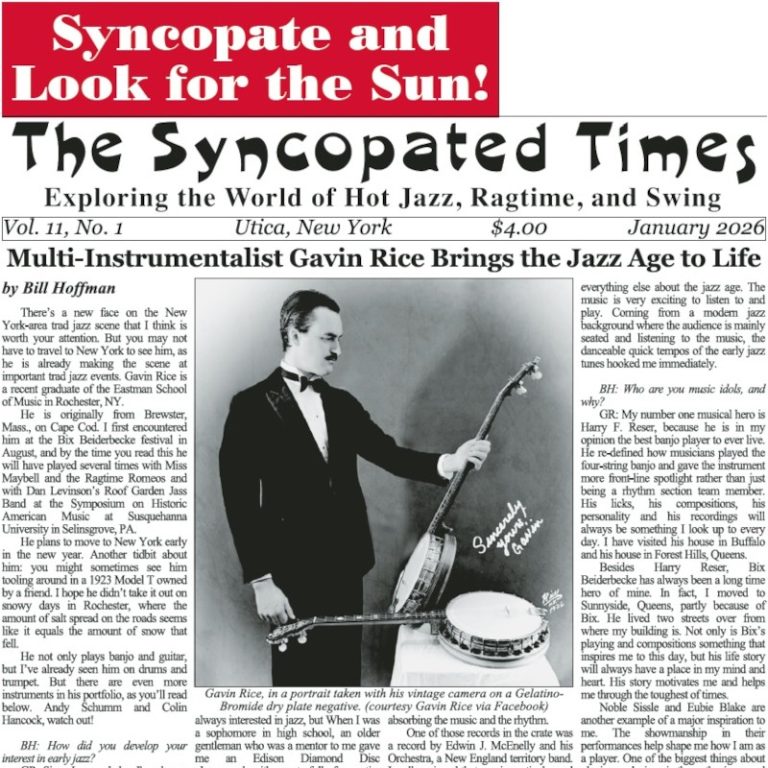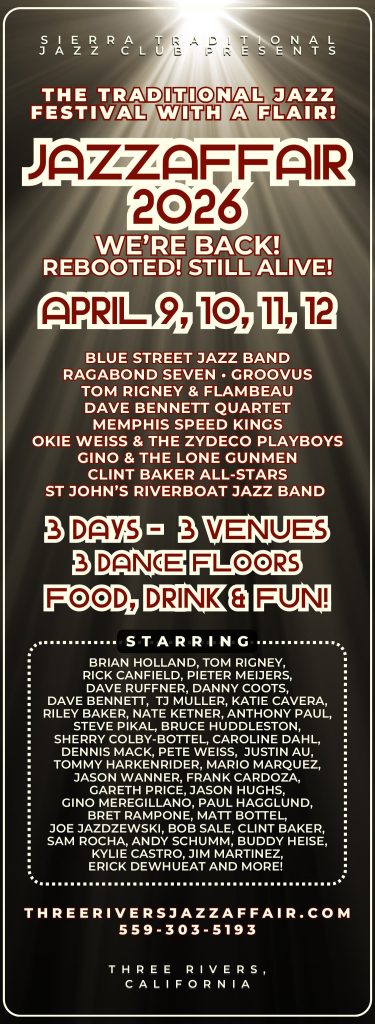 Paul Mares (June 15, 1900 – August 18, 1949) was from New Orleans and a childhood friend of Leon Roppolo and Abbie and George Brunies. While still a teenager Mares played in Tom Brown’s band and with his friend Leon Roppolo in the Crescent City. In 1919 he went North to Chicago and ended up playing in Tom Brown’s Band From Dixieland and with George Brunies. He and Brunies took a job working on the Mississippi riverboat S.S. Capitol. On the boat Mares and Brunies were reunited with their old friend Roppolo. The three left the boat and took a job at the Friars Inn, a gangster hangout in Chicago. And so the Friars Society Orchestra was born.
Paul Mares (June 15, 1900 – August 18, 1949) was from New Orleans and a childhood friend of Leon Roppolo and Abbie and George Brunies. While still a teenager Mares played in Tom Brown’s band and with his friend Leon Roppolo in the Crescent City. In 1919 he went North to Chicago and ended up playing in Tom Brown’s Band From Dixieland and with George Brunies. He and Brunies took a job working on the Mississippi riverboat S.S. Capitol. On the boat Mares and Brunies were reunited with their old friend Roppolo. The three left the boat and took a job at the Friars Inn, a gangster hangout in Chicago. And so the Friars Society Orchestra was born.
With the exception of the Original Dixieland Jass Band, the Friars Society Orchestra was the most influential White jazz band of the 1920s.When the band left the club they became known as the New Orleans Rhythm Kings. The records that the band made in 1922 and 1923 were widely copied by other White musicians of the 1920s. Jelly Roll Morton recorded five songs with the band in 1923 and this session is generally considered the first “racially mixed” Jazz record, although Jelly didn’t consider himself to be Black, but rather Creole. New Orleans Rhythm Kings split up in 1924 and Roppolo and Mares went to New York and played with Al Siegal.
In 1925 Mares returned to New Orleans and re-formed the New Orleans Rhythm Kings with Roppolo and recorded seven songs for Okeh and Victor records, but soon afterwards Mares quit music to join the family fur business. Leon Roppolo had a severe nervous breakdown and was confined to a mental institution for the rest of his life. Mares worked outside of music until he re-formed the New Orleans Rhythm Kings yet again in 1934 and recorded for Decca and played engagements in New York and Chicago. He then left music again until 1945. In the last three years of his life he started another band that played in the Chicago area.
![]()
| Friars Society Orchestra / New Orleans Rhythm Kings | Paul Mares and his Friars Society Orchestra |
Redhotjazz.com was a pioneering website during the "Information wants to be Free" era of the 1990s. In that spirit we are recovering the lost data from the now defunct site and sharing it with you.
Most of the music in the archive is in the form of MP3s hosted on Archive.org or the French servers of Jazz-on-line.com where this music is all in the public domain.
Files unavailable from those sources we host ourselves. They were made from original 78 RPM records in the hands of private collectors in the 1990s who contributed to the original redhotjazz.com. They were hosted as .ra files originally and we have converted them into the more modern MP3 format. They are of inferior quality to what is available commercially and are intended for reference purposes only. In some cases a Real Audio (.ra) file from Archive.org will download. Don't be scared! Those files will play in many music programs, but not Windows Media Player.






